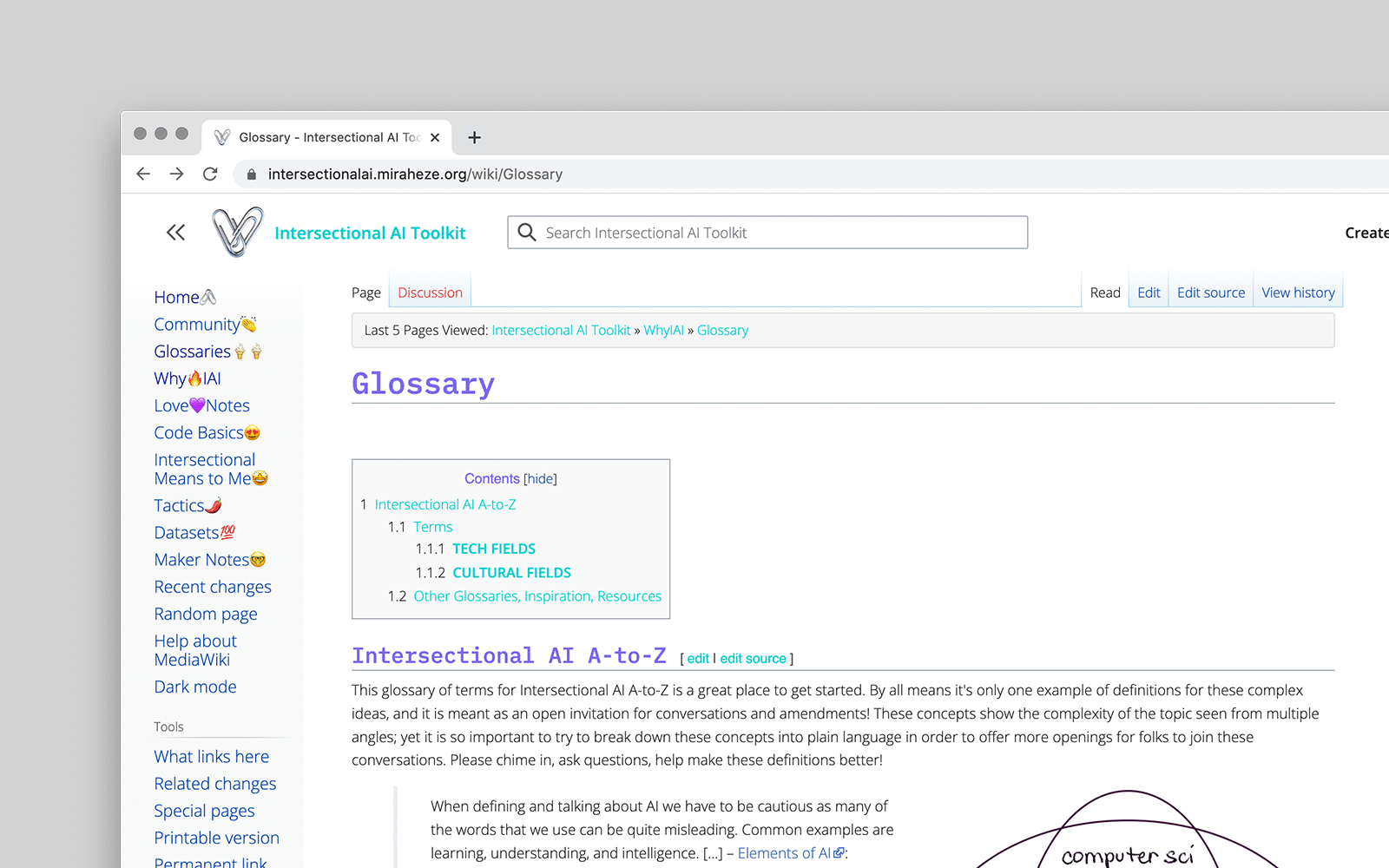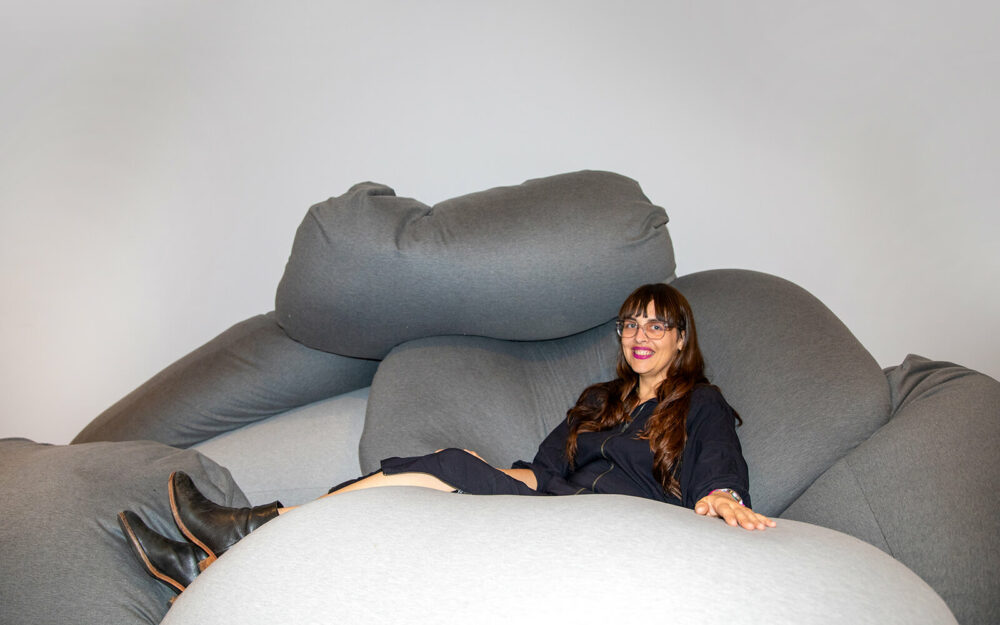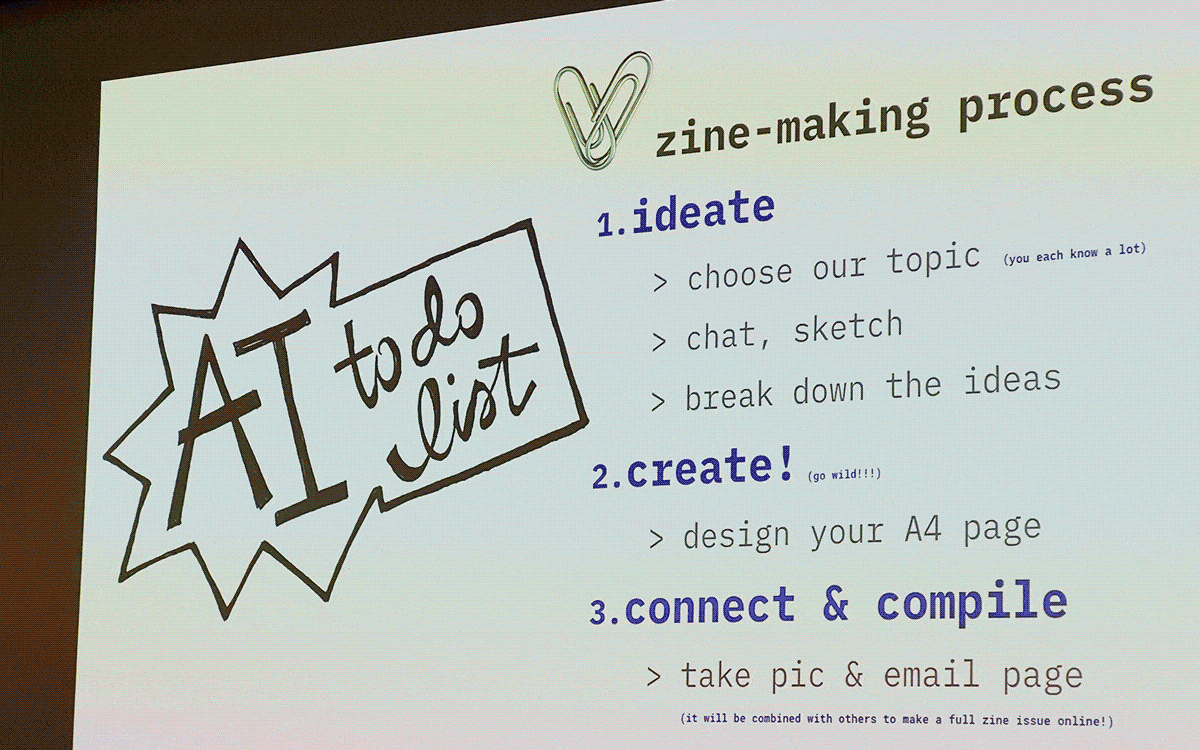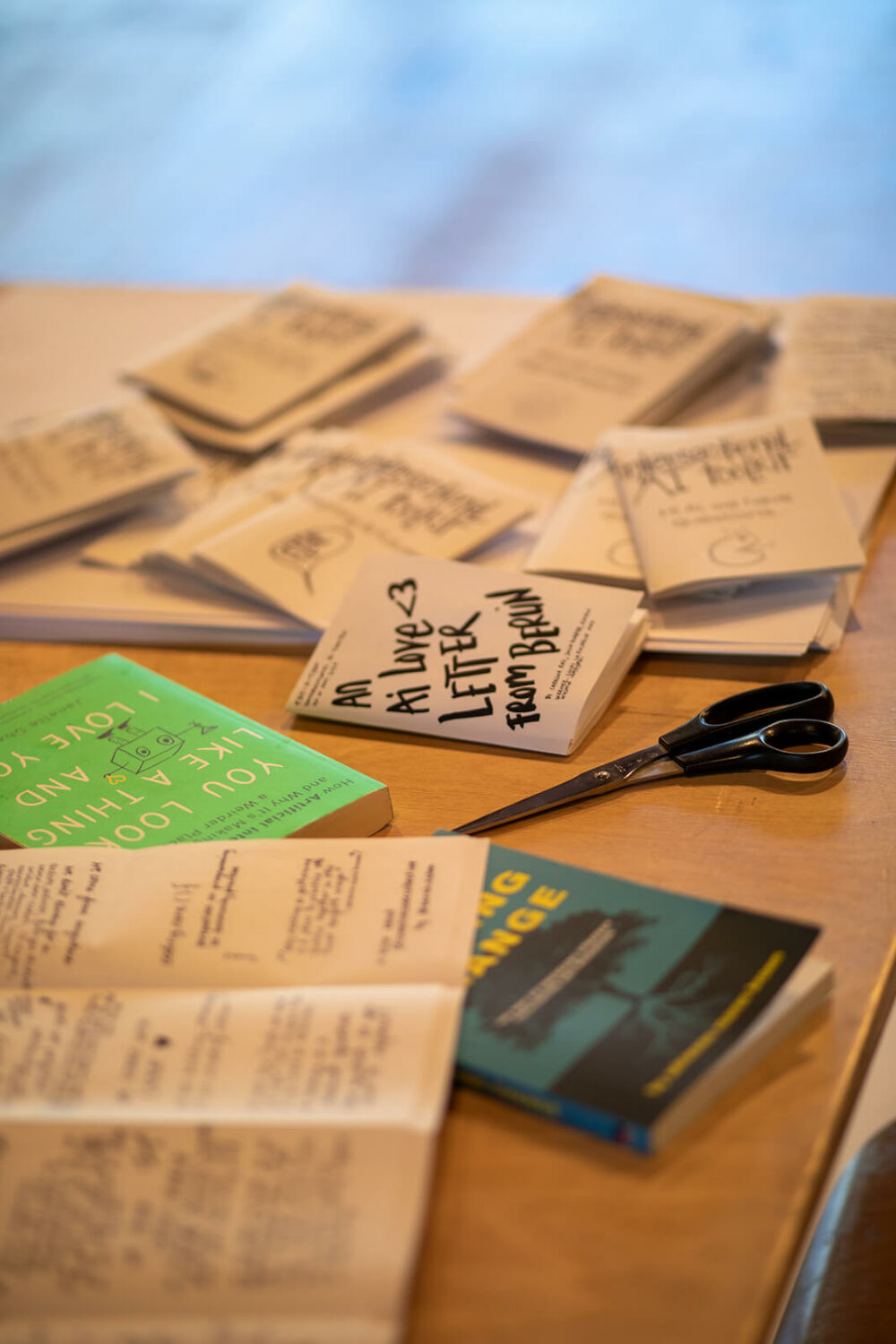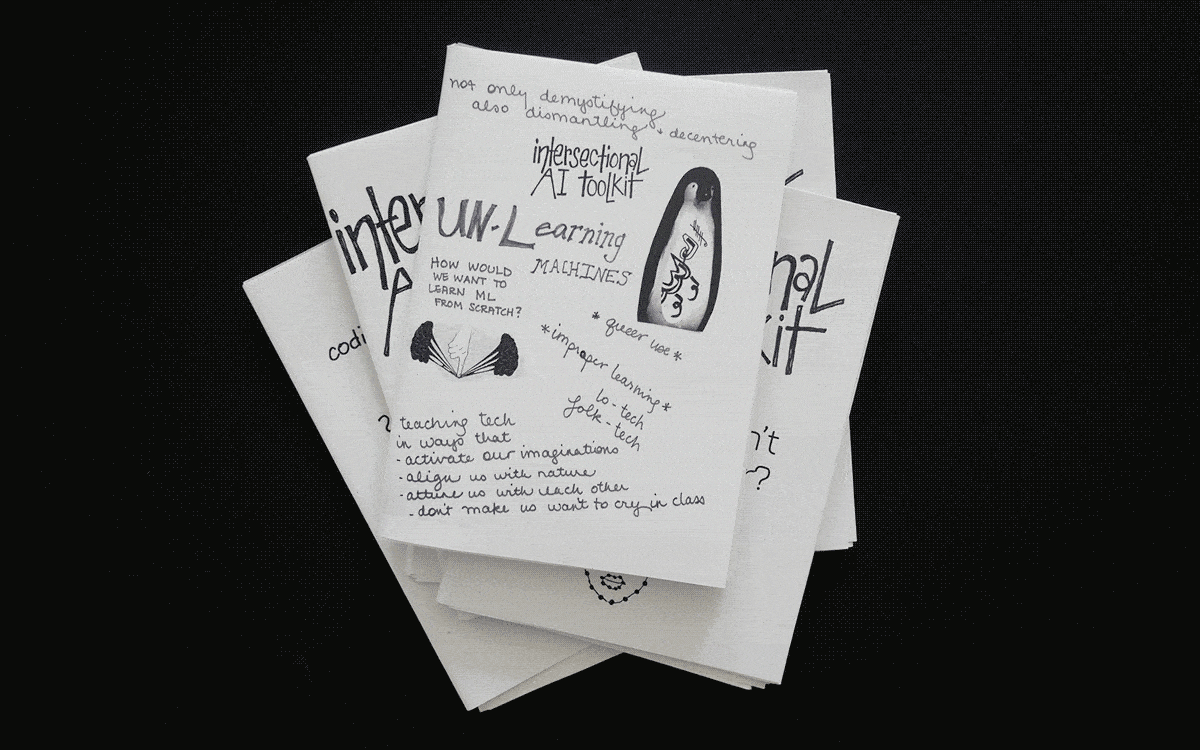← Explore
Workshop
Intersectional AI Zine-Making Collaboratory
Instructor:
Sarah Ciston

Profile:
Sarah Ciston
Sarah Ciston builds critical-creative tools to bring intersectional approaches to machine learning. Ciston is an AI Anarchies Fellow at the Akademie der Künste; a Mellon PhD Fellow in Media Arts and Practice at the University of Southern California; and author of the forthcoming A Critical Field Guide to Working with Machine Learning Datasets, from the Knowing Machines research project.
Brief:
Existing AI tools carry an aura of magic and require massive technical resources to be able to wield. Ignoring them, this zine-making session invites Autumn School participants to imagine easily accessible AI tools—as tangible and approachable as a hammer or a garden spade—that ask ‘what infrastructure, language, communities, approaches, or perspectives need to take place in the field?’
Soundbite:
“Anyone should be able to understand what AI is and to help imagine what AI ought to be. The Intersectional AI Toolkit is a collaborative collection of zines that introduce intersectional approaches to AI, building on established but marginalized practices to fundamentally reshape the development and use of AI technologies.”
Sarah Ciston, getting Autumn School participants on the same page
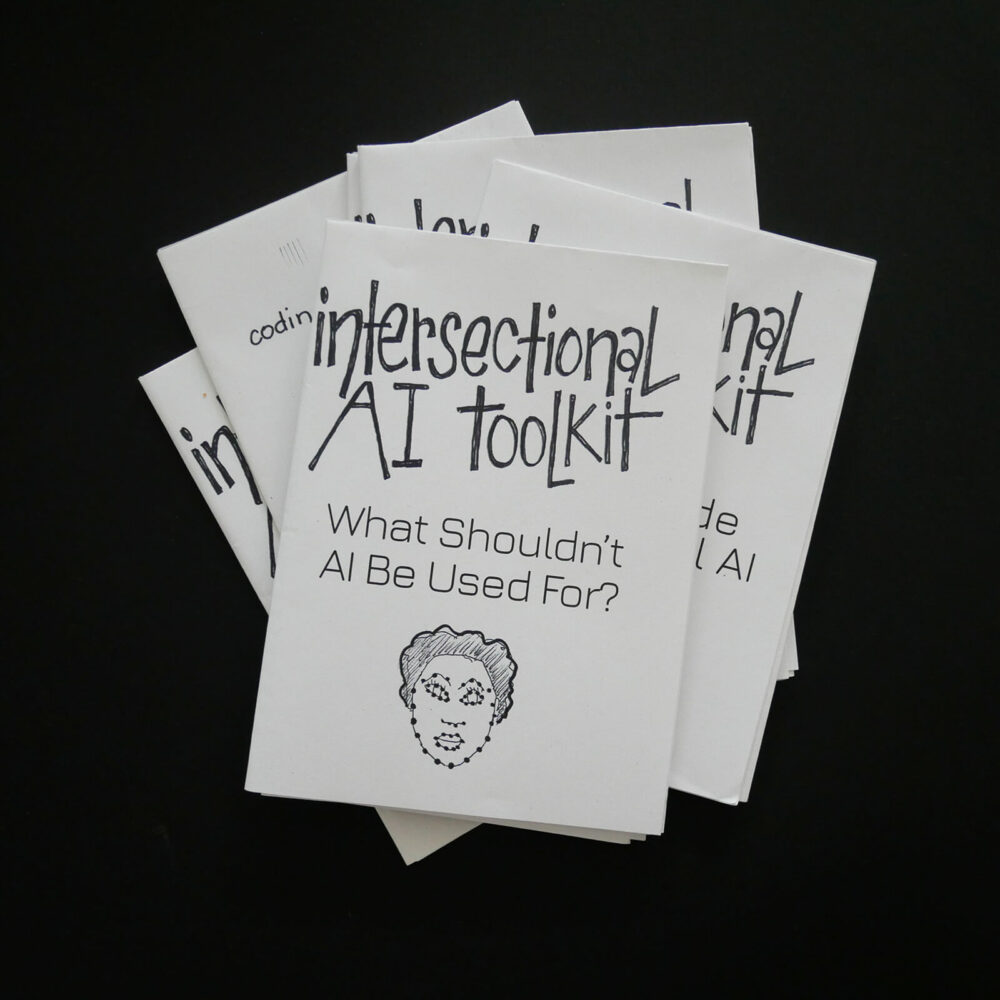
Precedent:
The Intersectional AI Toolkit is a series of booklets for “artists, activists, makers, engineers, and you” that gather ideas, ethics, and tactics for more ethical, equitable tech through publishing sprints. Past editions emerged from workshops at Creative Code Collective, HIIG IAI Edit-a-thon, and Mozilla Festival and ask questions like “How can artists help reshape AI” and “What shouldn’t AI be used for?”
Soundbite:
“Rather than asking whether AI is biased, fair, or good, we need to be asking how AI is shifting power—that’s the most important question. Intersectionality can helps us understand that power.”
Precedent:
The Intersectional AI A-to-Z is just one of the many gems in the Intersectional AI Toolkit Ciston launched in early 2022. Bridging the technical and the cultural (C is for ‘confidence interval’ in the former, ‘code of conduct’ in the latter) the glossary provides definitions to help someone new to the field navigate its intricate discourse—or to help someone more on the computer science side acquaint themselves with equity-related perspectives.
Soundbite:
“No special expertise is required. Instead, we are co-learning and co-creating, invested in what all of us have to teach each other. We will investigate key questions around how AI affects us differently, what we need to understand about AI in order to reshape it, and—most importantly—what shapes we want AI to take in order to be more ethical and equitable.”
Sarah Ciston, levelling the playing field
Process:
To start, Autumn School participants discuss their varied paths into technology and AI: the good, the bad, and the ugly. From having no background in technology, to the jarring experience of being in a computer science classroom that was over 85% men—struggling to feel like you belong—to coming to technology through an interest in film, to growing up with a parent who was a programmer. Experiences were shared and recounted to help participants hone the messages they want to convey in their collectively-produced zine.
Photography: Silke Briel
Photography: Silke Briel
Soundbite:
“A zine page is a small space and that’s kind of the point: the constraint is part of the magic, as it forces you to be short and sweet and express yourself swiftly and joyfully. General rule of thumb: first thought, best thought!”
Sarah Ciston, on the joys of zine-making
Soundbite:
“There’s so much good stuff here, I feel like we can easily make seven different issues.”
Sarah Ciston, describing the ideal position an editor likes to find themselves in
Outcome:
By the end of the session, the group compiled their writing and thinking into an 8-page issue of the Intersectional AI Toolkit series of zines. A compendium of theorizations and feelings, it “not only demystities but dismantles and decentres” AI through a playful pastiche of handwriting and diagrams. Bringing queer, p[unk], and critical perspectives to our current data and information regime, it encapsulates the tone, urgency, and thoughtfulness of the pressing conversations that have unfolded at the Autumn School.
Download this and past editions from the Intersectional AI Toolkit website.
Download this and past editions from the Intersectional AI Toolkit website.
Takeaway:
